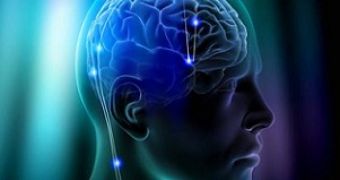The number of people suffering with Alzheimer's is on the rise and the drugs developed thus far have failed to provide a solution to this problem.
Because of this, a team of specialists working with the Johns Hopkins University School of Medicine is now trying to see whether or not a so-called brain pacemaker might help keep this conditions from progressing.
The idea is quite simple: rather than toying with the chemical makeup of the brain by administering more or less experimental drugs, these researchers wish to attempt performing deep brain stimulation.
What all the science talk concerning this clinical trial comes down to is as follows: a patient's brain has a device implanted in it, and this device is to regularly emit electrical charges at low voltages.
This will supposedly help improve on the patient's ability to remember various things.
“The device, which provides deep brain stimulation and has been used in thousands of people with Parkinson’s disease, is seen as a possible means of boosting memory and reversing cognitive decline,” the researchers in charge of this clinical trial explain.
Up until now, only one patient has had such a pacemaker implanted in his brain, and a second one is to have the device implanted later this month, Huffington Post reports.
Should things go as planned, as many as 40 Alzheimer's patients are to have a brain pacemaker inserted in their brain as part of this clinical trial.
“Recent failures in Alzheimer's disease trials using drugs such as those designed to reduce the buildup of beta amyloid plaques in the brain have sharpened the need for alternative strategies,” explained Dr. Paul B. Rosenberg, M.D.
“This is a very different approach, whereby we are trying to enhance the function of the brain mechanically. It's a whole new avenue for potential treatment for a disease becoming all the more common with the aging of the population,” he went on to add.

 14 DAY TRIAL //
14 DAY TRIAL //